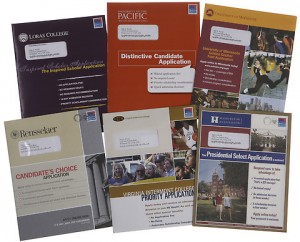June, 2010 archive
Have You Experienced This? 0

This past June we saw many graduation celebrations in the towns surrounding our main office here in the heart of New England. It began about eighteen years ago for the high school seniors and who knows how many years for the college grads. (See Undergraduate Catagory below.) It seems like yesterday that I was in their shoes. Well, maybe the day before yesterday.
The valedictorians and an assortment of college commencement speakers will have shared their words of hope and encouragement to millions of graduates by the end of June across the country. You may have heard one or two of them.
There is one speaker you will not hear at any of these celebratory events this week. But you can here. In fact, I believe anyone can benefit from his enriching words of wisdom. His name is Michael Himes. He was a Professor of Theology at Boston College.
His last lecture prior to retirement at BC was one of the most meaningful, inspirational and compassionate talks I have ever had the pleasure of hearing. I almost think that most traditional commencement speakers could be cancelled and a DVD of his last lecture simply be handed out to all the college graduates. Here is yours. Let me know what you think.
As each spring comes and transitions into summer, I am energized with new life as I see our students conclude one phase of their education and start another. For many teenagers, it may not include college but nonetheless it is a journey toward personal growth and maturity. Hopefully, it will be more than biological maturity but emotional, spiritual and intellectual maturity as well. All of which can come about without the benefit of the college experience.
But if college is the next step, then take full advantage of it. We show students how to evaluate colleges in two important ways. First, how does the freshman class statistical profile fit their profile? By the time the junior year is concluded, a good number of statistical measures can be seen to determine that.
Our students will do their due diligence using the AAA method. That includes seeking out the Common Data Set for each college on their list.
Second, is the college qualified to provide the educational and social experience they are seeking? Do not measure a college by the number of professors with a PhD degree it may have. That does not mean they can teach. For example, look here at a Yale professor introducing his course in finance, Economics 252. By the way, this professor in 2013 won a Nobel prize for Economics. That award is as unmerited as the Nobel Peace prize given to Barrack Obama was. I suggest these are two reasons why our country is such poor shape financially. Graduates are either clueless or have cleverly figured out how to “game” the system.
 If you can, watch his perplexing presentation. What this professor says in the introduction to his course could be said in fifteen minutes. Someone somewhere decided that college, like high school, should be a four-year experience, as a result much of what takes up valuable class time is just inflated fluff. What is taught in four years can be covered more than adequately in three. What do you think?
If you can, watch his perplexing presentation. What this professor says in the introduction to his course could be said in fifteen minutes. Someone somewhere decided that college, like high school, should be a four-year experience, as a result much of what takes up valuable class time is just inflated fluff. What is taught in four years can be covered more than adequately in three. What do you think?
In any case, is the college faculty qualified to teach your child? And, what is it they need to learn? Those are the questions which we can help you answer. Call for a FREE get acquainted conversation. (978) 820-1295 or Zoom.
Do It, but Don’t Over Do It 0
The Dynamics of Demonstrated Interest
By Eric Hoover
 This year, American University received a record 17,000 admissions applications, a 13 percent increase over last year. With quantity came quality: by various statistical measures, the university will admit its most accomplished, most diverse class ever this fall. And American’s admit rate fell to 43 percent from 53 percent this year.
This year, American University received a record 17,000 admissions applications, a 13 percent increase over last year. With quantity came quality: by various statistical measures, the university will admit its most accomplished, most diverse class ever this fall. And American’s admit rate fell to 43 percent from 53 percent this year.
In the numbers-driven realm of admissions, all this is good news, a sign of rising fortunes. But it’s also a complicated development. For one thing, applications have swelled at so many selective colleges that the meaning of such an increase can be difficult for a given admissions office to interpret (increases this year could portend increases next year-or not). Moreover, as colleges become more selective, they often find themselves competing with institutions a rung or two higher on the ladders of selectivity and desirability, at least for the top students.
Although there is prestige in this kind of association, there is also uncertainty. How many applicants would turn down a super-selective, big-name college to attend a somewhat less-selective, less-famous one? How do you know whether a student considers your college a top choice or a “safety school”? How does an applicant’s sense of “fit” with a college relate not only to matriculation, but also retention?
In recent years, such questions have prompted American’s admissions team to look more closely at “demonstrated interest,” the popular term for the contact students make with a college during the application process, such as by visiting the campus, participating in an interview, or e-mailing an admissions representative. In theory, it’s a way to measure the likelihood that an applicant will matriculate-and succeed if they do.
